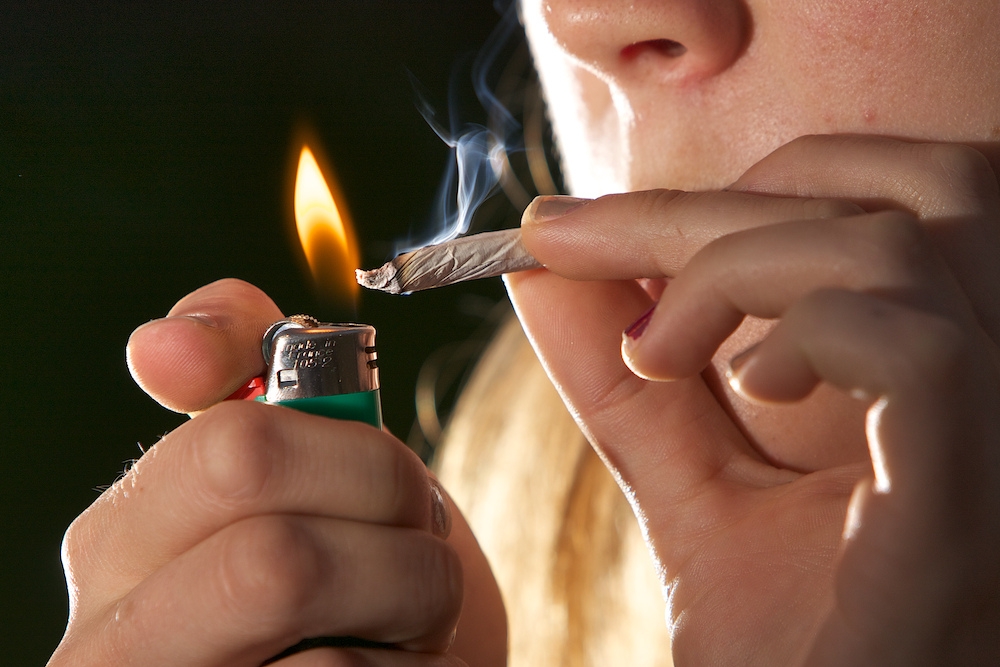This summer, SMU’s Deason Criminal Justice Reform Center is releasing a series of reports studying what happened when, in 2019, Dallas County District Attorney John Creuzot stopped prosecuting most first-time, small-time marijuana possession charges. Part One studied how low-level weed charges disproportionately harm poor people. Researchers also found that Black people, despite using marijuana at similar rates as White people, were more frequently arrested and prosecuted on misdemeanor weed charges.
The sequel, out today under the wonderful heading of “Budding Change,” explores whether Creuzot’s policy led police departments to arrest fewer people for marijuana possession. It did, for the most part, with two exceptions: Police in Duncanville and Wilmer reported more arrests and citations for marijuana in 2019 than they did in 2018, before the policy change. SMU researchers saw that an even bigger drop-off in misdemeanor pot cases in Dallas County occurred in June 2019, when the state legalized hemp and effectively required that police arrange for expensive lab tests to determine whether a substance qualified as hemp or marijuana.
Overall, marijuana cases referred to the DA’s office decreased by about 31% between 2018 and 2019, although there was some variation among the county’s respective police departments. From the report:
Among the six police departments responsible for the largest volume of marijuana arrests, Richardson and Mesquite showed the greatest change— both departments reduced their arrest volumes by 52%. Three other departments also showed substantial reductions of 44% (Garland and Irving) and 24% (Grand Prairie).
The Dallas Police Department was an outlier. Although it was responsible for 39% of all 2018 marijuana arrests, the department decreased its 2019 marijuana arrests by only 11% in 2019. The greatest change occurred in Sachse, where the marijuana arrest volume decreased by 88% from 2018 to 2019. Other cities showing relatively high levels of change included DeSoto (-86%), University Park (-79%), Addison (-70%), and Carrollton (-70%).
The numbers for the Dallas Police Department may be a little skewed here. Arrests and case referrals made by state troopers—who were in town throughout the summer of 2019 as part of a controversial enforcement effort in response to a violent crime spike—were attributed to Dallas PD in the report. Dallas police did, however, seem to buck the trend again last year, continuing to file a disproportionate number of misdemeanor pot charges when compared to neighboring cities.
There’s more recent evidence that Dallas police are finally trying to ease off on pot arrests. In April, new Dallas Police Chief Eddie Garcia relaxed his department’s policy to cut back on arrests for small amounts of marijuana.
Until state or federal lawmakers decide to get with the extremely popular program and legalize it, cops and prosecutors in Texas have a lot of discretion in handling marijuana cases. Here’s the report again:
While police decide which cases enter the criminal legal system, prosecutors decide which cases (and which defendants) remain in the system. A prosecutor screens every police referral, deciding whether to accept or decline prosecution of that case. Each screening decision increases or decreases the size and cost of the local justice system.
Elected district attorneys exercise almost exclusive control over the cases that they prosecute. Responsible district attorneys must make sound decisions about how to use public resources.
A formal policy declining to prosecute certain types of cases is one strategy for resource conservation. A non-prosecution policy can dramatically, unilaterally, and immediately reduce the number of criminal cases. To increase racial justice and reduce fiscal waste, many elected prosecutors, including DA Creuzot, have declined to prosecute marijuana possession.
As Dallas gears up for debate about how to best use public resources and make policing more fair and equitable, it’s worth keeping all of this in mind.






